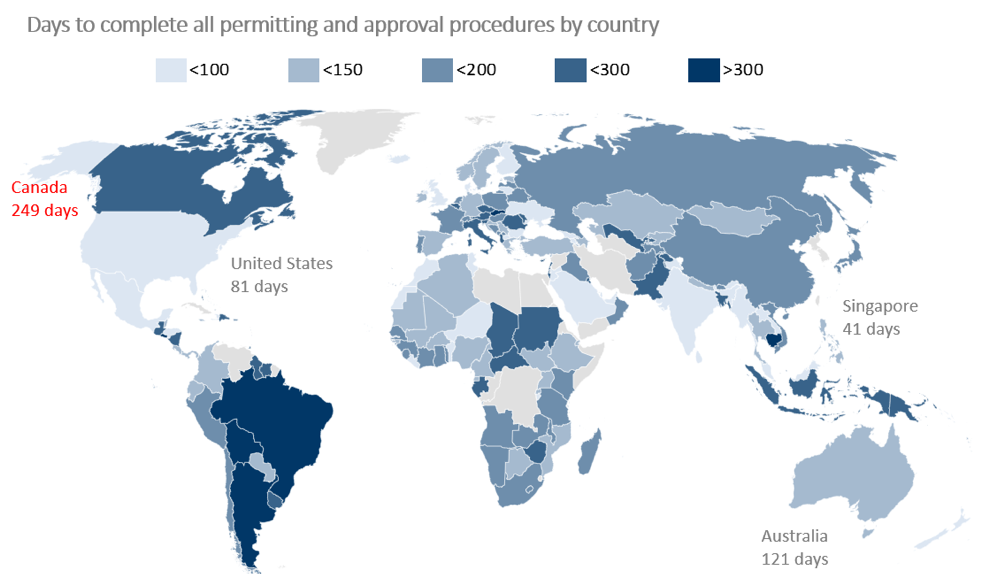In a best case scenario, the population of Canada is expected to reach 43.8 million in 2036, up from 33.7 million in 2019, which implies a greater housing demand. Microeconomics 1.0 taught us that if higher demand is not accompanied by an increase in supply, prices are bound to rise. There is no doubt that it is getting increasingly difficult to buy a new home especially in cities like Toronto, partially attributed to the constrained housing supply chain in the region. One way to unlock the supply chain is by accelerating the development approval process which tends to be one of the biggest bottlenecks. The World Bank currently ranks Canada’s building permit process at 63rd position in the world among 187 countries with site plan approval delay being a major factor in this low ranking (in fact Canada is in the bottom 20 percentile of this parameter).

The World Bank rankings are based on a relatively simple building type – a warehouse in an area which is zoned for warehouses. Even for such a simple building type, construction permits in Toronto could take 249 days. Compare this to 41 days in Singapore, 81 days in the US and 121 days in Australia. In fact, based on a survey conducted by RESCON (Residential Construction Council of Ontario) and CUR (Centre for Urban Research and Land Development), average residential projects in Ontario take 25.5 months to go through the building approval process.
Disclaimer: While we use reasonable efforts to include accurate and up-to-date information, we do not represent, warrant or promise (whether expressly or by implication) that any Content (including any information sourced from third parties or estimates calculated by us) is or remains available, accurate, complete and up-to-date, free from bugs, errors or omissions or fit or suitable for any purpose. R-LABS Canada Inc., its shareholders, directors, officers, employees, representatives and agents will not be liable to you or any third party for any indirect, special, incidental, punitive, exemplary or consequential damages in connection with the use of this information.




